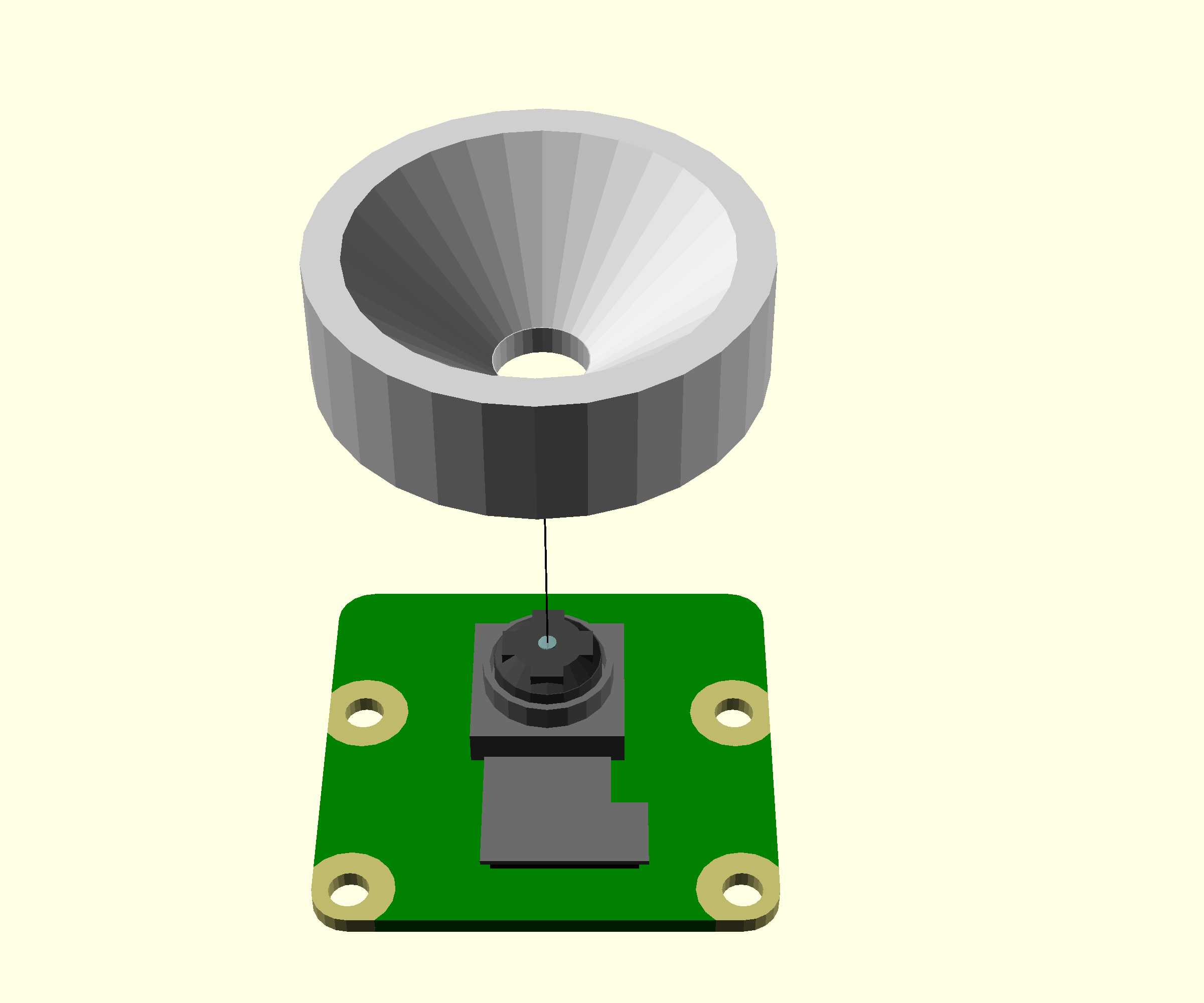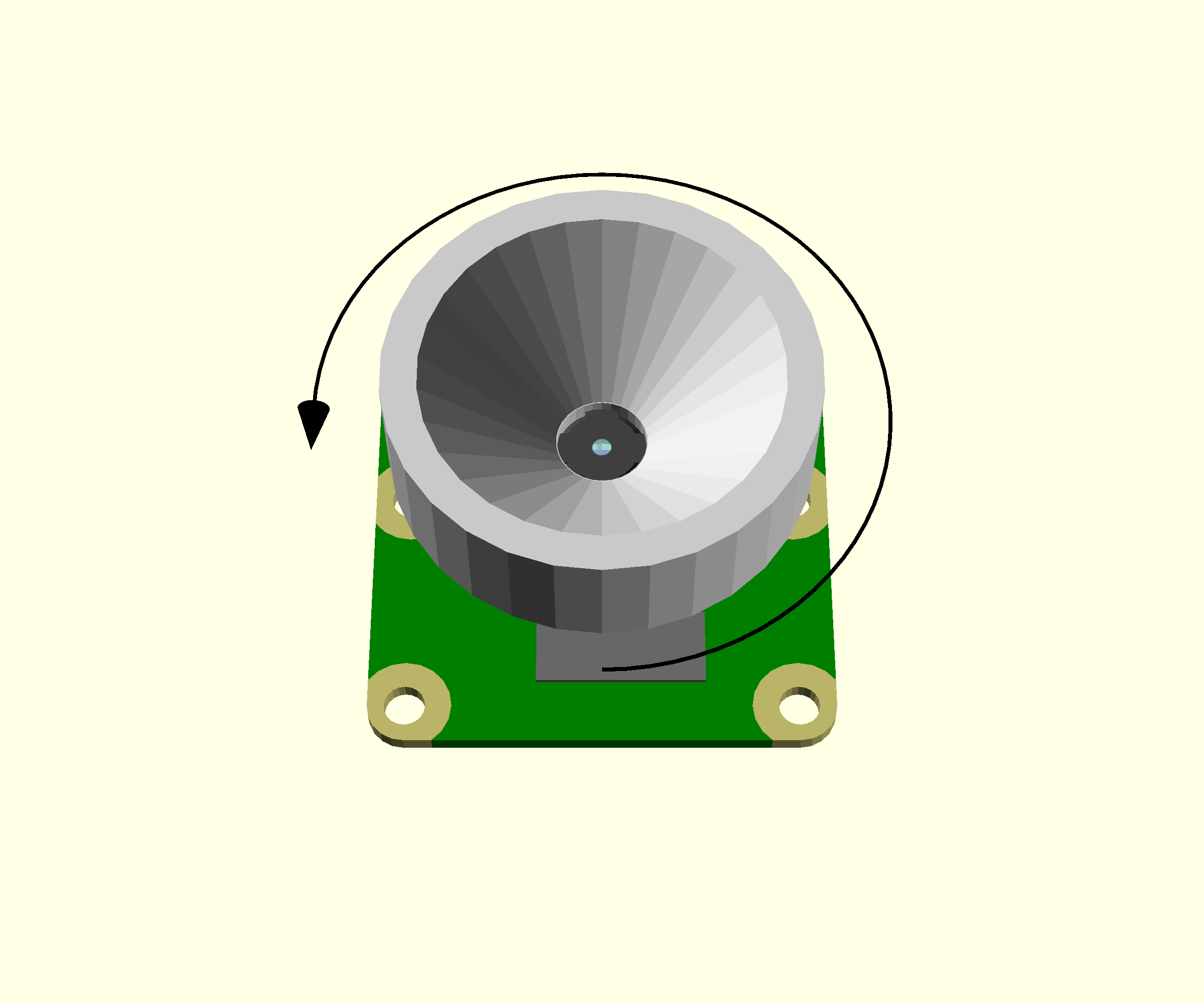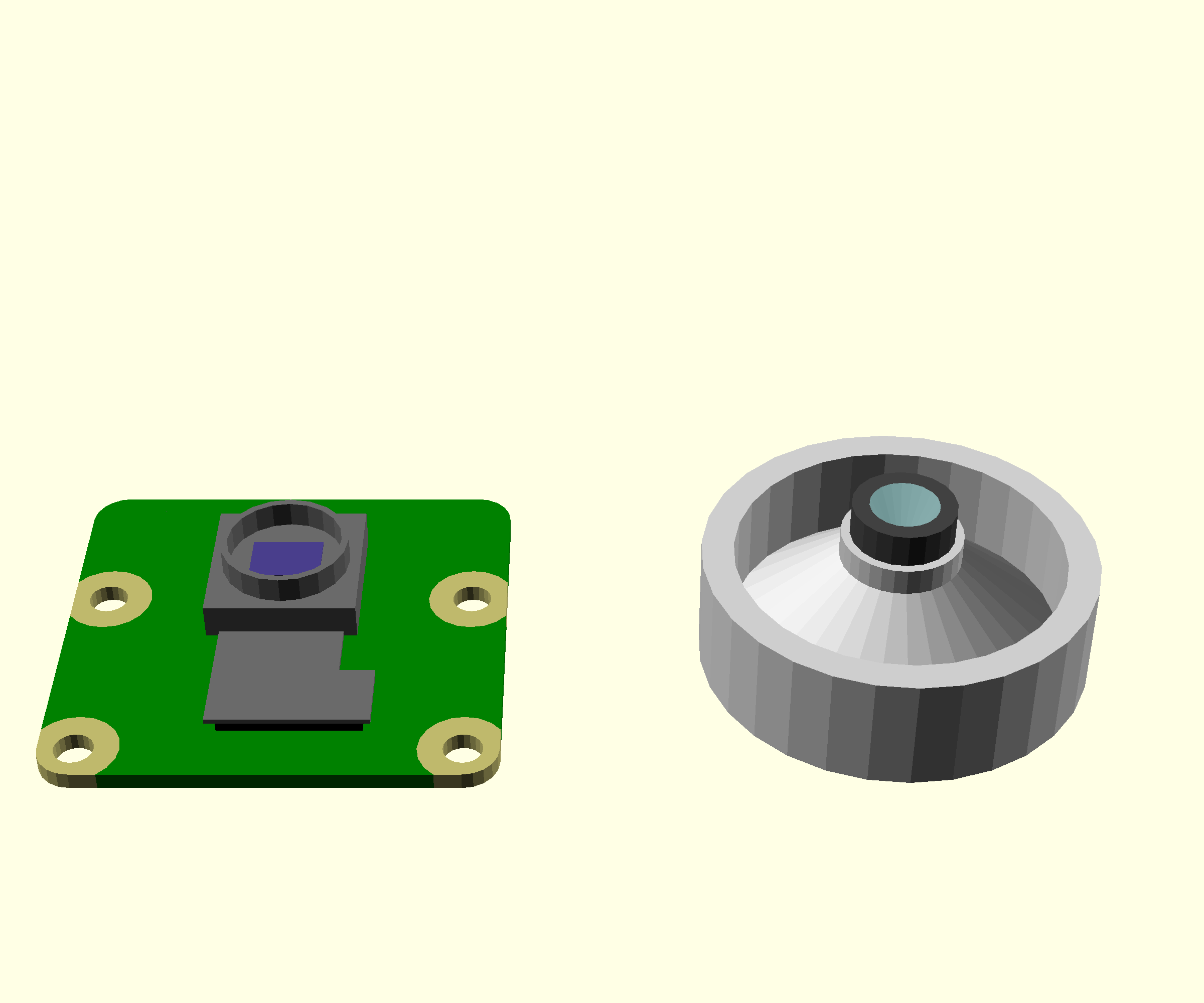Assemble the basic optics module
The imaging optics for this version of the microscope consist of an the Raspberry pi camera and the lens from the camera. To create a microscope the wide angle lens is reversed and separated from the camera. This makes quite a good microscope objective with a field of view about 400μm across and a resolution of around 2μm.
For this section you will need:
Tools
- 1 #1 pozidrive screwdriver
- 1 Pi Camera lens tool - This should come with the pi camera
Printed Parts
Electronic Components
Mechancial Components
Step 1: Visually inspect the lens spacer
Take the lens spacer and confirm that:
- It has been printed in black (why?)
- It is dust free (You can blow air through to clean it)
- The central shaft is not obstructed by strings of plastic.
Step 2: Remove Pi Camera Lens
WARNING! The camera board is static sensitive.
- Before touching the Pi Camera touch a metal earthed object. If you own one, consider wearing and anti-static strap.
- Take the Pi Camera out of the package. Make sure to hold it only by the sides of the board.
- Take the protective film off the lens.
- Take the Pi Camera lens tool and place it over the lens
- Slowly unscrew the lens (About 4 full turns of the tool)
- Carefully lift off the lens.
- Save the lens and the camera, we use both this version of the microscope.




Push-fit the lens
- Work out which side of the lens used to be facing the camera sensor (This is the side with more lens visible)
- Place the lens over on the top of the lens spacer, with the side that was next to the camera sensor on top
- Push the lens into the lens spacer with pressure on the very edge of the lens.
Step 3: Attach the Pi Camera
- Take the Pi Camera and place it ontop of the pi camera platform.
- Place the lens spacer over the picamera
- Use four No 2 6.5mm self tapping screws to secure the three parts together using a #1 pozidrive screwdriver
- Take care to not over torque the screws.
Step 4: Attach the mounting screw
- Take an M3 nut and push it into the nut trap from the top
- Take an M3x10 cap head screws and screw it into the nut.
- Only screw it in a couple of turns. About 5 mm of thread should still be visible
Step 5: Connect ribbon cable
- Take the Raspberry Pi ribbon cable
- Pull the catch forward on the exposed Pi Camera connector
- Insert the ribbon cable with the contacts towards the board
- Close the catch on the connector
Step 6: Set the complete module aside
Set the complete optics module aside in a safe place.